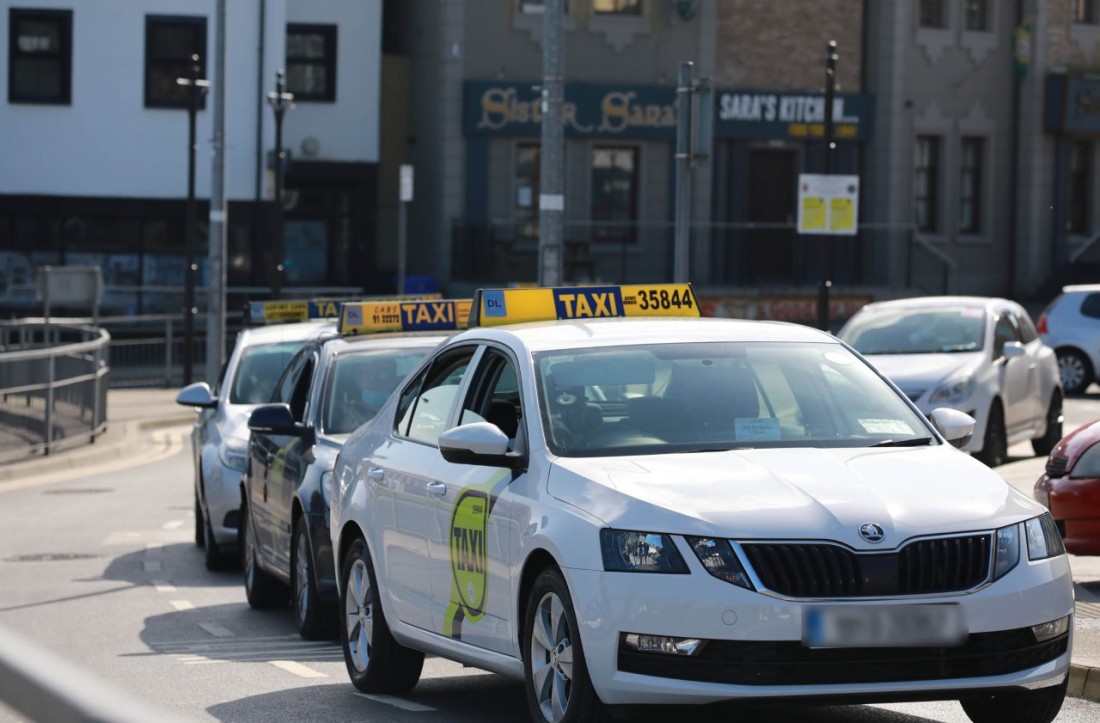NEW figures from the National Transport Authority (NTA) reveal that Donegal has still not recovered its pre-Covid taxi driver numbers, as it experienced a 18 per cent drop since 2019.
The figures show that despite Ireland’s population growing by 8.5 per cent from 2019 to 2024 and inbound tourism numbers rising by five per cent from 2023 to 2024, taxi driver numbers have remained stagnant or in sharp decline in many areas.
Regional analysis shows alarming declines since 2019. The border region (Donegal, Cavan, Monaghan) is down nearly 20 per cent with continued stagnation from 2023 to 2024.
Nationally, the total number of taxi drivers has increased by only one per cent yet actual taxi vehicle numbers operated by drivers have dropped 4.4 per cent from 2019 to 2025. The figures show that taxi driver growth is overwhelmingly concentrated in Dublin, exacerbating existing inequalities and leaving both urban and rural communities, which have limited public transport alternatives, disproportionately disadvantaged.
While Dublin, Limerick and Kerry have shown moderate growth, 10 counties showed no growth or continued decline even from 2023 to 2024, including Donegal, Wexford, and Waterford.
Despite an increase in the three counties referenced, the lack of availability is affecting the tourism, hospitality and night-time economies.
“We are still facing a taxi shortage crisis,” said Adrian Cummins, CEO of the Restaurants Association of Ireland and founding member of the Taxis for Ireland Coalition.
“It’s being hidden behind a modest urban recovery, but the reality in regional areas and at urban peak times is that people are stranded.
“In rural Ireland, hospitality businesses are being devastated. Without taxis, people stay home.”
Mr Cummins said that the Wheelchair Accessible Vehicles (WAV) rule is locking out the very drivers we need.
The Taxis for Ireland Coalition identifies the requirement for new taxis to WAVs as the primary barrier to new drivers entering the market. WAVs typically cost over €60,000, and grant assistance from the NTA is highly oversubscribed. In 2025, the WAV Grant closed within 15 minutes of opening, following similar occurrences in 2024 and 2023.
“We need a modern, flexible, and inclusive taxi system. Right now, the system works for no one – not the drivers, not the passengers, and not our economy.”
The Taxis for Ireland Coalition is calling for the development of a national taxi strategy that addresses rural accessibility, seeks to increase the taxi fleet and analyses night-time supply.
The coalition is also calling for the retention and refocus of the WAV grant to serve all WAV users.










